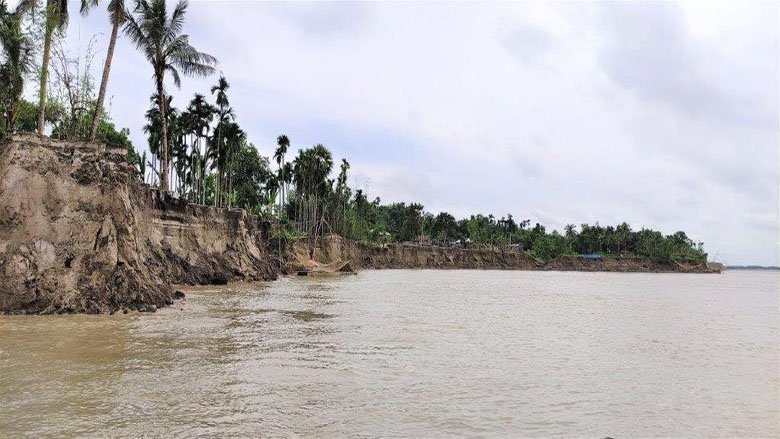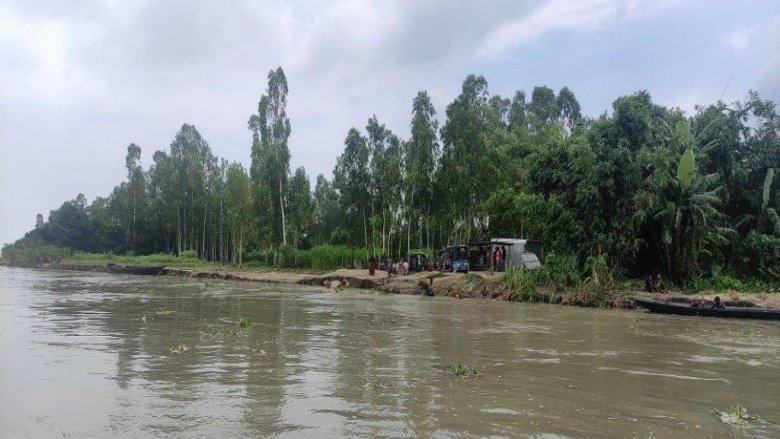“Water, water, everywhere, Nor any (clean) drop to drink.” The lament of the ancient mariner may well be shared by Bangladesh which has abundant water but struggles to provide universal and safe water supply and sanitation services to more than 140 million Bangladeshis. Host to the largest delta in the world with a network of more than 230 major rivers, the country faces significant natural hazards, including tidal surges, salinity, and flooding. Despite having successfully reached the Millennium Development Goals for water and sanitation it is quite behind in achieving the Sustainable Development Goals (SDGs). In Bangladesh, 68.3 million people lack access to safely-managed drinking water and 103 million people lack access to safely-managed sanitation. Rivers in Bangladesh, which are its lifeblood, providing transportation and ecological services, and livelihood to millions of people, have witnessed decreased flows due to erosion, pollution, and encroachment.
The World Bank with support from Global Water Security and Sanitation Partnership (GWSP) is providing analytical support, technical assistance, and capacity building to assist Bangladesh’s journey towards a livable and prosperous delta and to achieve the targets under SDG6 to ensure access to safe water and sanitation for all.
Addressing Water Sector Challenges in Bangladesh with GWSP support
The World Bank has been actively engaged in Bangladesh’s Water Supply and Sanitation (WSS) sector since 1990 — supporting scaling up and capacity building of pro-poor rural water and sanitation systems, assisting policy and regulatory reforms, and aiding development of innovative private sector partnership service delivery models for rural water supply and sanitation. Starting in 2017, the World Bank has been broadening its engagement in the water sector in the country and, in recent years, has strongly supported the government’s ambitious Bangladesh Delta Plan 2100 (BDP 2100). The BDP 2100, a flagship national plan, aims to eliminate extreme poverty, help Bangladesh achieve upper-middle income status by 2030 and become a prosperous country by 2041. Its key goal is to ensure water and food security, economic growth, and environmental sustainability while reducing vulnerability to climate change.
To support the BDP 2100, the World Bank has developed a Bangladesh Water Platform that brings together different stakeholders Undertaken with GWSP assistance, this Platform has facilitated coordination between stakeholders and supported analytics that provided an important evidence base to inform government policies and projects. Some of the flagship studies delivered under the Bangladesh Water Platform include Promising Progress, a diagnostic of WSS in Bangladesh; Monsoons, Rivers, and Tides – a diagnostic of the water sector; and the Public Expenditure Review analyzing fiscal aspects of the water sector. These have informed initiatives and projects not only in the water sector but also in environment, urban and rural development, and human capital.
For instance, the work delivered under the Platform has directly informed the design of the Jamuna River Sustainable Management Project Project (Phase 1) financed by a $100 million loan from the World Bank. This multi-sectoral initiative is the first in a series of projects on this iconic and braided river that will improve management of floods and erosion, improve the navigability of the river, and provide insurance cover to vulnerable communities in the event of major disaster.
Another major initiative under the Platform has been to support the government in its thinking on and efforts to clean up and rejuvenate the rivers around its capital, Dhaka. Specifically, the World Bank is helping the government in developing a long-term Umbrella Investment Program for the restoration of the rivers in Dhaka and enhancing their interconnected urban-water-navigation services through a strategic framework. It is helping prioritize and sequence scores of planned investments and providing recommendations for their effective implementation. It is also supporting preparation of major projects such as the Dhaka Rivers Ecological Restoration Project, which will work on pollution hot spots in and around Dhaka to reduce the amount of untreated sewage, industrial effluent and solid waste pollution entering the rivers surrounding the city, thereby improving the lives of the people of Dhaka.
The Water Platform also brough its multisectoral approach to designing the Rural Water, Sanitation and Hygiene (WASH) for Human Capital Development Project. It is one of the largest rural WASH projects supported by the World Bank globally at $550 million targeting 9 million beneficiaries. The project provides capacity-building and financial support to microfinance institutions, which offer WASH loans to households and local entrepreneurs for toilet construction and water facilities improvement. This not only helps to increase local private sector capacity and enable them to expand business by linking with microfinance institutions, but also deliver WASH services in a cost-effective way to the poor. The project is also addressing human development challenges faced by vulnerable households in some of the poorest regions of the country by leveraging multisectoral interventions in WASH, and health and nutrition, and income support through two other World Bank projects in the same geographical area with common delivery platforms and communications strategy.
Through these innovative and multisectoral activities, the World Bank with GWSP support is helping Bangladesh fulfill its goal of a livable and prosperous delta for its 171 million people.
The steady analytical and operational development work, and strategic policy dialogue with Bangladesh over the past five years have created an effective collaboration between the World Bank, Government of Bangladesh, and other development partners. This in turn has created opportunities for developing longer-term programs to address critical development needs in the country.
Looking ahead, Bangladesh’s vulnerability to the effects of climate change and other socio-economic challenges persistently threatens its steady future growth. Thus, continued and tailored support from partners such as the World Bank, including GWSP, are vital to bringing into Bangladesh global knowledge, leverage local lessons, and help the country uphold its inspiring story of growth and development as it aspires to become an upper middle-income country by 2031.

